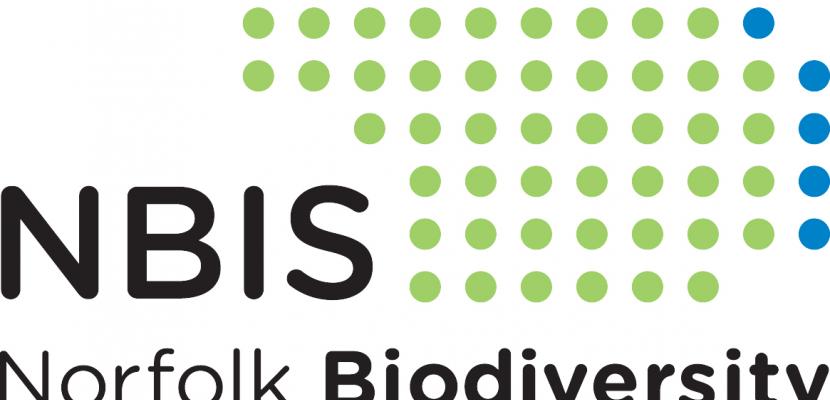Image

Norfolk Biodiversity Information Service
Published on 14 March 2019

United Kingdom
East Anglia
This is the good practice's implementation level. It can be national, regional or local.
About this good practice
Norfolk Biodiversity Information Service (NBIS) is the Local Environmental Records Centre (LERC) for Norfolk. It acts as a "one stop shop" for biodiversity and other environmental data and information.
NBIS holds over 3.5 million species records, mapping of habitats and protected sites, geodiversity and other information. Accuracy of the information is ensured by working with a network of local experts - county recorders - who validate and verify records to ensure that they are for for purpose.
NBIS provides data to a wide range of users including government agencies, planning authorities, NGOs, consultants, developers and the public. Commercial users are charged for services.
As well as delivering data locally NBIS also publishes data to the National Biodiversity Network Atlas from where it is published to GBIF.
Most data is provided and verified by volunteers and NBIS actively supports this network by providing funding, training and other services.
NBIS has been accredited by the Association of Local Environmental Records Centres (ALERC) recognising that it has met a specified set of criteria that ensure high quality services to users.
NBIS led the development of the East of England standard service for commercial enquiries. A service operating across the 6 counties of East Anglia and neighbouring counties. This specifies a minimum standard for content, quality and speed of response to enquiries in the region. This was designed following consultation with customers.
NBIS holds over 3.5 million species records, mapping of habitats and protected sites, geodiversity and other information. Accuracy of the information is ensured by working with a network of local experts - county recorders - who validate and verify records to ensure that they are for for purpose.
NBIS provides data to a wide range of users including government agencies, planning authorities, NGOs, consultants, developers and the public. Commercial users are charged for services.
As well as delivering data locally NBIS also publishes data to the National Biodiversity Network Atlas from where it is published to GBIF.
Most data is provided and verified by volunteers and NBIS actively supports this network by providing funding, training and other services.
NBIS has been accredited by the Association of Local Environmental Records Centres (ALERC) recognising that it has met a specified set of criteria that ensure high quality services to users.
NBIS led the development of the East of England standard service for commercial enquiries. A service operating across the 6 counties of East Anglia and neighbouring counties. This specifies a minimum standard for content, quality and speed of response to enquiries in the region. This was designed following consultation with customers.
Expert opinion
The good practice is an excellent model for developing an effective central point for biodiversity data at a local or regional level. The approach is interesting with regards to involving a network of local experts who are volunteers to maintain accuracy of information. Collected data are used by a wide spectrum of stakeholders. The fact that the data centre has been designed through a consultation with customers is a guarantee for the quality of its services and their adaptability to customer needs. The good practice could be of interest to national and/or regional authorities who face issues with data fragmentation. They could further explore technical issues, data availability issues, etc.
Resources needed
Annual financial cost of NBIS is around £80000 to cover staff costs and other expenses.
More importantly an effective support network is needed fro the volunteers who provide the data that forms the basis of the service. This is dependent on the building of good relationships.
More importantly an effective support network is needed fro the volunteers who provide the data that forms the basis of the service. This is dependent on the building of good relationships.
Evidence of success
NBIS continues to grow its resource of data and information demonstrating that there is an effective network of data providers.
Commercial income is growing year on year.
Customer satisfaction is high with many commenting on the speed and quality of the response to enquiries.
NBIS has taken part in a number of Defra funded studies piloting new approaches to data gathering.
Commercial income is growing year on year.
Customer satisfaction is high with many commenting on the speed and quality of the response to enquiries.
NBIS has taken part in a number of Defra funded studies piloting new approaches to data gathering.
Potential for learning or transfer
NBIS can be a potential model for how to develop an effective central point for biodiversity data either at a local or regional level.
Valuable lessons about building relationships and developing support networks can be transferred to other regions.
The use of a recognised accreditation system to demonstrate quality can act as a model for others.
Valuable lessons about building relationships and developing support networks can be transferred to other regions.
The use of a recognised accreditation system to demonstrate quality can act as a model for others.
Further information
Website
Good practice owner
You can contact the good practice owner below for more detailed information.
Organisation
Norfolk County Council

United Kingdom
East Anglia